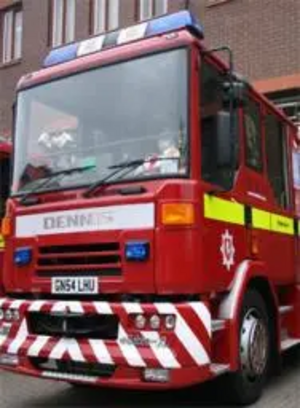Fire Service Cuts

Fire-fighters are warning that the number of Fire Engines available at night is planned to be cut by Surrey County Council, reducing public safety at the time people feel most vulnerable.
Hidden from public attention by its innocuous title, Surrey's new "Public Safety Plan" reduces the number of appliances available at night from 30 to 21.
The Epsom fire station, which also serves the surrounding area, not just Epsom, is to have its present two fire engines cut to just one during the night.
There are also plans to increase the crew on each fire engine from 4 to 5 (though in London they have 6), reduce reliance on part-time fire-fighters and increase the amount of training and publicity about fire safety awareness. These moves are generally welcomed.
What is worrying is the increased response times at night under the new plan. County Cllr Colin Taylor has been asking questions about this ever since the proposals were published last December.
He says: "It is easy to get bogged down in a lot of detail, but the justification seems to be that traffic conditions on the roads are better at night, so they can give as good a service at night with less appliances as they can during the busier traffic during the day."
"However people do want and expect a quicker response at night time. Fires can already take hold while people are asleep and so a rapid response is even more urgent at night."
"Whatever sophisticated answers may be given, cutting the number of appliances available at night must inevitably mean a reduced level of safety."
"Surrey may save money under the new plan, but the price is reduced public safety during the night."